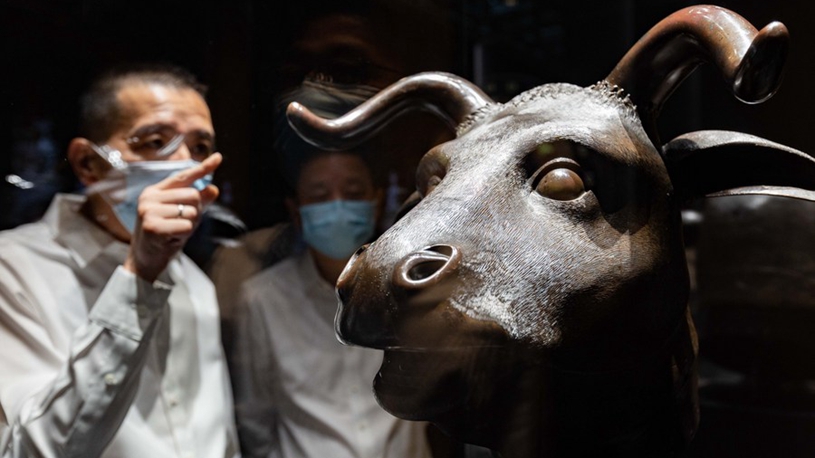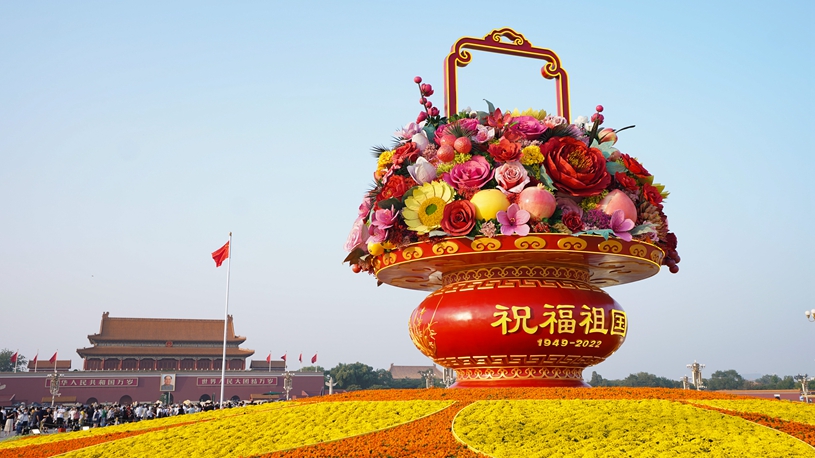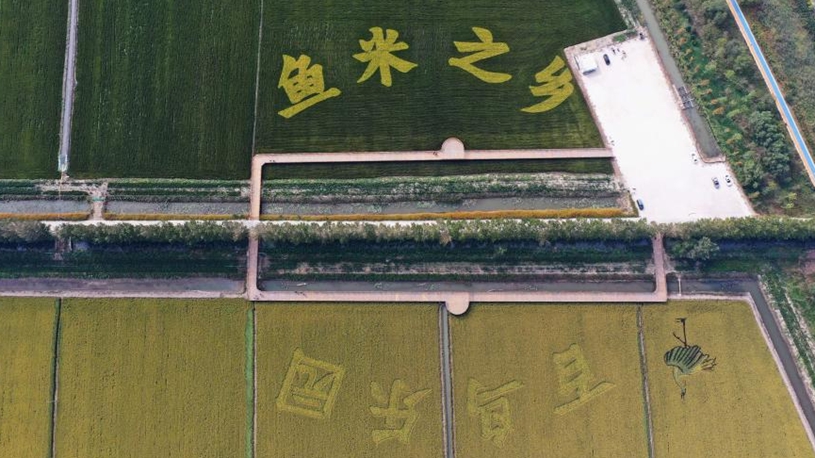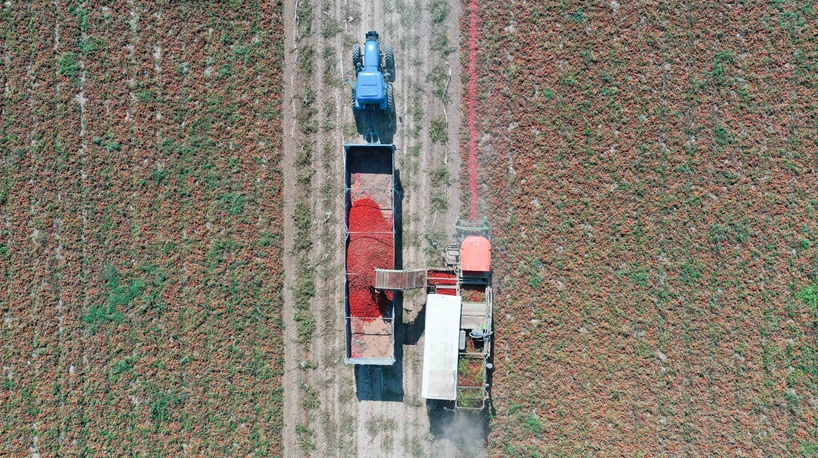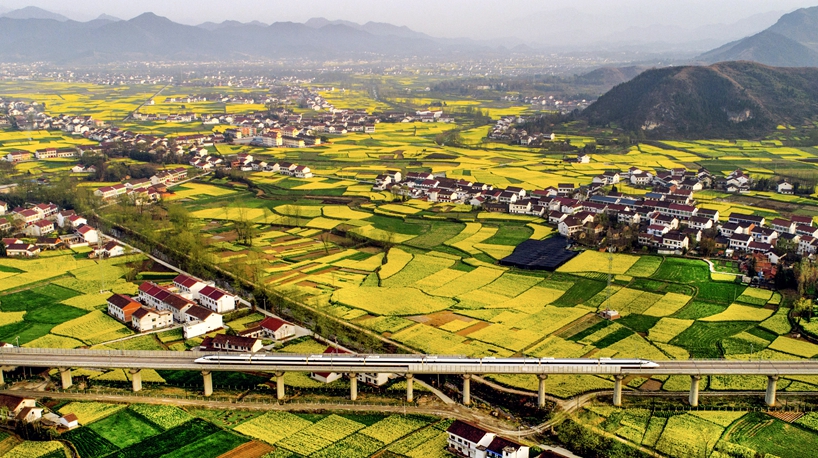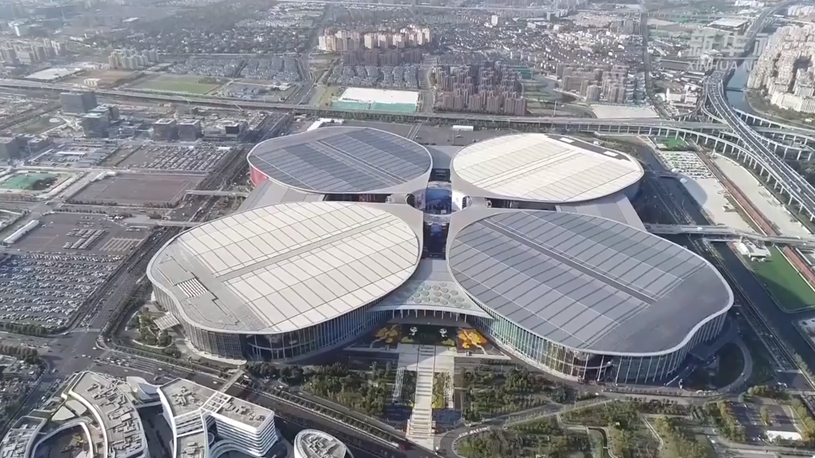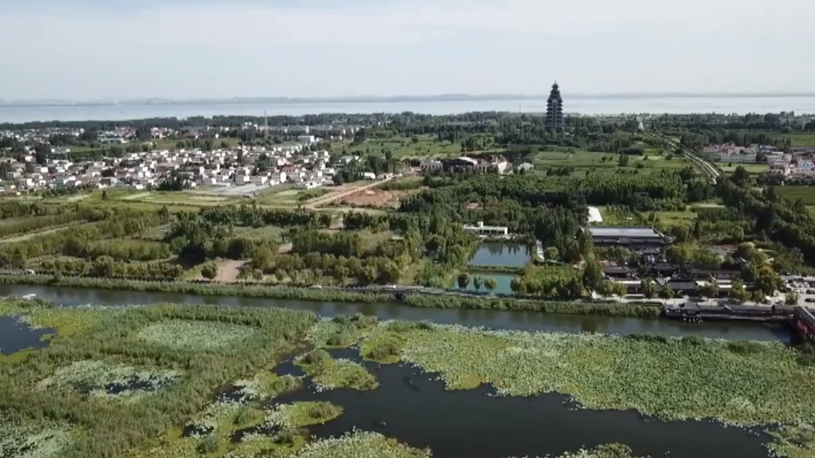
Artists play traditional Chinese musical instruments at a gala commemorating the 50th anniversary of normalization of China-Japan diplomatic ties in Tokyo, Japan, on Sept. 16, 2022. (Photo by Shang Yong/Xinhua)
"The normalization of Japan-China diplomatic relations has not come easily. I hope the two countries can continue to maintain their friendship in the future," said Watanabe.
TOKYO, Sept. 27 (Xinhua) -- "I firmly believe that the future of Japan-China relations is bright," said Mitsuko Watanabe, granddaughter of former Japanese Prime Minister Masayoshi Ohira.
"The normalization of Japan-China diplomatic relations has not come easily. I hope the two countries can continue to maintain their friendship in the future," said Watanabe in a recent interview with Xinhua.
On Sept. 25, 1972, despite pressure and opposition at home, the then Japanese Prime Minister Kakuei Tanaka visited Beijing with officials including then Foreign Minister Ohira for the negotiation on the normalization of the Japan-China diplomatic relations.
The Chinese and Japanese governments on Sept. 29, 1972 issued a joint statement on normalizing diplomatic relations between the two countries.
Watanabe, only a 10-year-old girl five decades ago, still remembered the morning of that Sept. 25.
"I was in the last car in the convoy to see off the delegation. On the capital's highways red-flashing police department patrol cars were silently clearing the way. The image of the motorcade quietly driving to Haneda Airport is still imprinted in my mind like a movie scene."
"Before the delegation left for China, there were daily demonstrations by opposition forces. One day, more than 1,000 right-wingers clashed with riot police in my neighborhood. The usually quiet residential area suddenly became noisy," Watanabe recalled. "I peeked out of the closed windows, terrified."
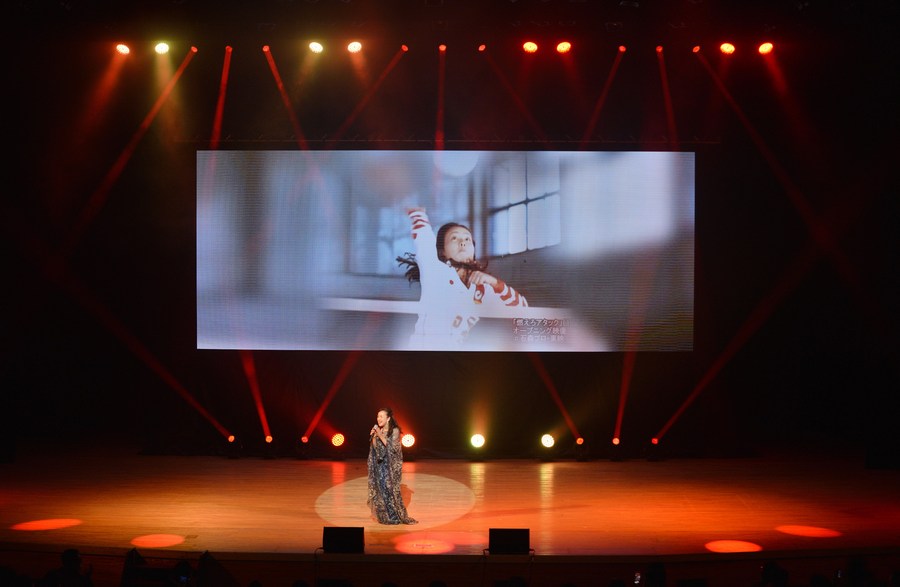
Japanese actress and singer Yumiko Araki performs at a gala commemorating the 50th anniversary of the normalization of China-Japan diplomatic ties in Tokyo, Japan, on Sept. 16, 2022. (Photo by Shang Yong/Xinhua)
Normalizing ties with China was a long-standing political aspiration of Ohira, which is linked to the two countries' historical bond and his personal experience in China's mainland as a young man. In 1939, Ohira was relocated for work to China's Zhangjiakou city.
For about a year and a half, he visited many parts of China and witnessed the brutality of the Japanese army, which brought him the idea of making atonement for Japan's sins, Watanabe said, adding it was also at that time Ohira realized that Japan and China would have to work relentlessly to achieve harmonious co-existence.
After becoming Japanese prime minister, Ohira supported Japan's official development assistance to China, promoted the training of Japanese language teachers for China, and vigorously advanced cultural exchanges between the two countries.
"In 1992, I accompanied my parents in a trip to Beijing to attend the celebration of the 20th anniversary of the normalization of diplomatic relations between Japan and China. It was my first visit to China, and I was warmly received," Watanabe said, adding that when her late grandfather was awarded the China Reform Friendship Medal in 2018, she went to Beijing to receive the award wearing her grandmother's kimono decorated with peace doves.
"I was deeply moved as I truly felt the respect for my grandfather in China," said Watanabe.
Watanabe has been determined to be devoted to Japan-China exchanges since her childhood. After becoming a television producer, she rolled out a lot of major television programs related to China.
Also serving as the vice chairman of the Japan-China Film Festival Executive Committee, Watanabe often participates in exchange activities between the Japanese and Chinese cultural and artistic sectors, which, according to her, have kept her life "to the fullest."
"I was recently invited to a Japan-China student conference initiated by young people, and found that the youth from both countries showed much respect for each other's culture," Watanabe told Xinhua.
"It is up to us as adults to create an environment for sustainable dialogue and exchanges between the young people of the two countries, who shoulder the future of their nations," Watanabe added.■

